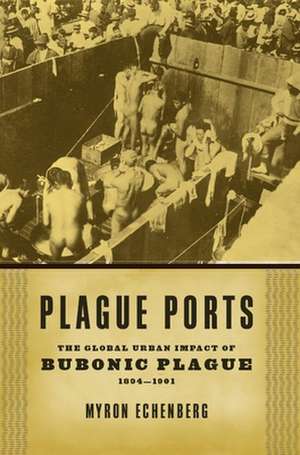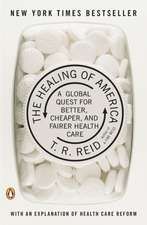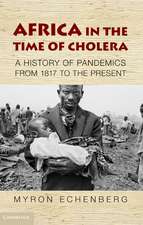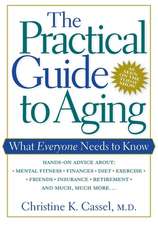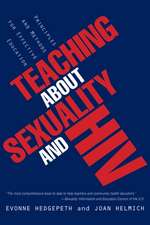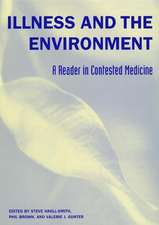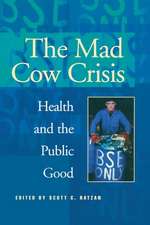Plague Ports – The Global Urban Impact of Bubonic Plague, 1894–1901
Autor Myron Echenbergen Limba Engleză Hardback – 7 ian 2007
| Toate formatele și edițiile | Preț | Express |
|---|---|---|
| Paperback (1) | 245.49 lei 6-8 săpt. | |
| MI – New York University – 31 mar 2010 | 245.49 lei 6-8 săpt. | |
| Hardback (1) | 530.91 lei 6-8 săpt. | |
| MI – New York University – 7 ian 2007 | 530.91 lei 6-8 săpt. |
Preț: 530.91 lei
Preț vechi: 689.49 lei
-23% Nou
Puncte Express: 796
Preț estimativ în valută:
101.60€ • 105.68$ • 83.88£
101.60€ • 105.68$ • 83.88£
Carte tipărită la comandă
Livrare economică 14-28 aprilie
Preluare comenzi: 021 569.72.76
Specificații
ISBN-13: 9780814722329
ISBN-10: 0814722326
Pagini: 366
Dimensiuni: 176 x 227 x 29 mm
Greutate: 0.65 kg
Ediția:1
Editura: MI – New York University
ISBN-10: 0814722326
Pagini: 366
Dimensiuni: 176 x 227 x 29 mm
Greutate: 0.65 kg
Ediția:1
Editura: MI – New York University
Recenzii
Provides an in-depth look at the ineffectiveness of certain public health disease control measures such as quarantine, isolation of patient contacts, and the importance of using knowledge of the pathogens disease ecology for the development and implementation of effective control measures.
International Journal of African Historical StudiesEchenbergs richly textured and deeply discerning account of the last plague pandemic is, as he points out, a cautionary tale of the politics of disease control in a globalized world. It should become compulsory reading for all who are engaged in the construction of the new discipline of global public health.
New England Journal of MedicineEchenberg's richly textured and deeply discerning account of the last plague pandemic is, as he points out, a cautionary tale of the politics of disease control in a globalized world. It should become compulsory reading for all who are engaged in the construction of the new discipline of global public health.
Dorothy Porter in The New England Journal of MedicineWell written and fluent in narrating its stories, this work can provide good reading not only for historians and students specializing in medicine, but for a wider public as well.Journal of World History[Echenberg] does an excellent job of presenting complex political and social consequences of the plague.
Choice, RecommendedAn extensive comparative study.
Science News"In an era when global issues have come to dominate public health discourse, Echenberg depicts the bubonic plague epidemic that struck six continents in the decades around 1900. With sophistication and sensitivity, he parses the multiple medical cultures, political systems, and varieties of popular response that met the plague. Few historians would take on such a daunting task: of chronicling an epidemic in ten cities, working with sources in more than a dozen languages, and comprehending multiple systems of medical thought. Echenberg pulls it off. Plague Ports is a masterwork of global health history.
Margaret Humphreys, Duke University"A significant contribution to the history of the modern pandemic."
--Carol Benedict, Georgetown University"The 1800s were, from Jenner to Pasteur to Koch, the years in which more progress was made in controlling infectious disease than in the previous 10,000, yet at the end of that century Plague swept round the world and killed multitudes as if to admonish us for our arrogance. Most of us today, even students of medical history, have avoided paying heed to that admonishment. Myron Echenberg's excellent scholarship and scientific sophistication oblige us, as we cower under the threat of avian flu, to pay the Third Bubonic Plague pandemic the attention it deserves."
Alfred Crosby, University of Texas and author of Children of the Sun: A History of Humanity's Unappeasable Appetite for Energy
International Journal of African Historical StudiesEchenbergs richly textured and deeply discerning account of the last plague pandemic is, as he points out, a cautionary tale of the politics of disease control in a globalized world. It should become compulsory reading for all who are engaged in the construction of the new discipline of global public health.
New England Journal of MedicineEchenberg's richly textured and deeply discerning account of the last plague pandemic is, as he points out, a cautionary tale of the politics of disease control in a globalized world. It should become compulsory reading for all who are engaged in the construction of the new discipline of global public health.
Dorothy Porter in The New England Journal of MedicineWell written and fluent in narrating its stories, this work can provide good reading not only for historians and students specializing in medicine, but for a wider public as well.Journal of World History[Echenberg] does an excellent job of presenting complex political and social consequences of the plague.
Choice, RecommendedAn extensive comparative study.
Science News"In an era when global issues have come to dominate public health discourse, Echenberg depicts the bubonic plague epidemic that struck six continents in the decades around 1900. With sophistication and sensitivity, he parses the multiple medical cultures, political systems, and varieties of popular response that met the plague. Few historians would take on such a daunting task: of chronicling an epidemic in ten cities, working with sources in more than a dozen languages, and comprehending multiple systems of medical thought. Echenberg pulls it off. Plague Ports is a masterwork of global health history.
Margaret Humphreys, Duke University"A significant contribution to the history of the modern pandemic."
--Carol Benedict, Georgetown University"The 1800s were, from Jenner to Pasteur to Koch, the years in which more progress was made in controlling infectious disease than in the previous 10,000, yet at the end of that century Plague swept round the world and killed multitudes as if to admonish us for our arrogance. Most of us today, even students of medical history, have avoided paying heed to that admonishment. Myron Echenberg's excellent scholarship and scientific sophistication oblige us, as we cower under the threat of avian flu, to pay the Third Bubonic Plague pandemic the attention it deserves."
Alfred Crosby, University of Texas and author of Children of the Sun: A History of Humanity's Unappeasable Appetite for Energy
Notă biografică
Myron Echenberg
Descriere
Descriere de la o altă ediție sau format:
Tells the story of ten cities on five continents that were ravaged by the third bubonic plague.
Tells the story of ten cities on five continents that were ravaged by the third bubonic plague.
